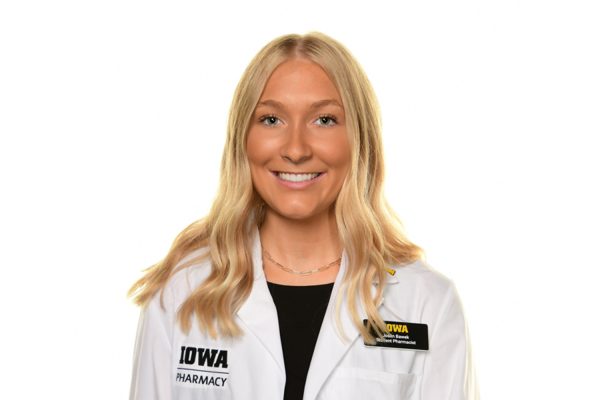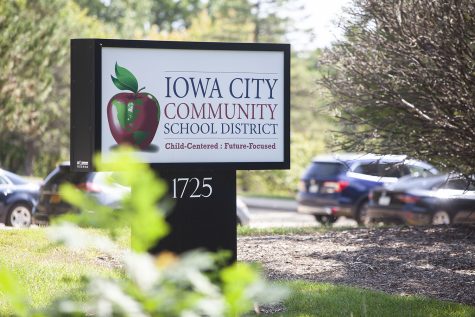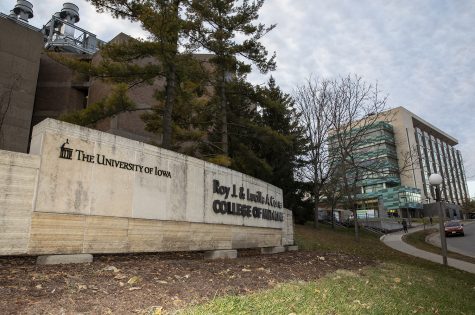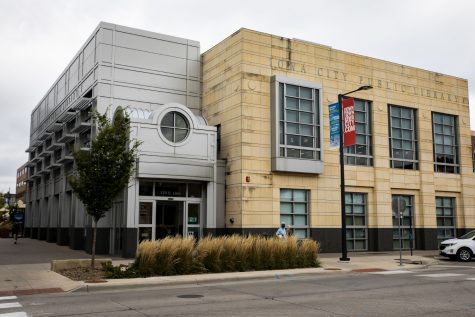Guest Opinion: Iowa must do more to protect clean water
A lawsuit filed by three advocacy groups targets alleged problems with the state’s water quality.
The Iowa Capitol is seen on Jan. 14 during the first day of the Legislative session. (Emily Wangen/The Daily Iowan)
June 10, 2019
Iowa Citizens for Community Improvement, Food & Water Watch, and Public Justice have filed a lawsuit against the State of Iowa because we have waited long enough for clean water in Iowa. Voluntary measures and the outdated Master Matrix for factory farm permitting are pipe dreams based on the hope that the factory farm industry will “do the right thing,” except that we know better.
Recent history shows us that we cannot even depend on the Iowa Department of Natural Resources (IDNR) to exert their regulatory duty to protect us. Satellite imagery for a mandatory report to the Environmental Protection Agency in 2017 revealed an additional 5,000 factory farms that the IDNR had not even identified yet.
Iowans have been turned away at lakes and other recreational water bodies due to ever-increasing posted and unposted health concerns which means that we cannot even enjoy and recreate in our natural resources.
Every two years (although the 2018 list has not even been published yet), the IDNR list of impaired waters increases, in tandem with the increasing number of factory farms. The last report showed that 60% of tested waters in Iowa are impaired. And with an average of 400 additional factory farms each year, comes the necessity to get rid of ever-more animal waste. Factory farm waste goes untreated on fields to the tune of 22 billion gallons each year. This is like having the waste from 134 million people, according to research from Chris Jones, Iowa Institute of Hydraulic Research. But, it is not treated, unlike the waste from Iowa’s 3 million people.
Besides nitrates, microcystin toxins and e. coli, what else ends up in our waterways? The answer came from the 2013 executive summary of scientific inquiry, at the Center for Disease Control and Prevention. Antibiotic-resistant bacteria from the use of antibiotics in factory farms directly link to adverse public health outcomes due to antibiotic-resistance bacteria being transmitted to humans through these food-producing animals in concentrated systems of factory farms.
Ongoing efforts to get factory farm legislation strengthened at the Iowa State House have failed. In the recent session, House File 203 did not proceed, despite a record number of co-sponsors, because it was refused by the Environmental Protection Committee Chair, Rep. Dean Fisher, R-Montour. Feeling heat from their local constituents, county supervisors in 26 counties in Iowa have signed onto resolutions to improved siting regulations for factory farms, in response to having their hands tied on such matters by state legislation.
Story County was one such county after residents were awakened to the close proximity of 15,000 hogs to Nevada, in three factory farms being permitted in December of 2018. Even the personal testimony of concern by the person employed by the county who has seen and scored many of these permitting Master Matrixes in the past did not deter this from proceeding. An appeal of the site with untreated animal waste applied to fields draining into Nevada’s flood-prone practice soccer fields failed.
Iowans want assurance that rules and procedures are in place to protect one of our most vital and necessary resources. Water is life. We demand that it is protected.
— Brenda Brink
Democratic candidate for Iowa House District 49 in 2018













